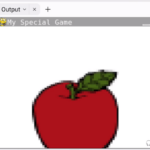Welcome future coders and game creators to our engaging Python tutorial! This tutorial aims to cover Python debugging techniques. With a language as versatile and widely-used as Python, learning how to effectively debug your code can save you a lot of time and effort, and make your coding journey smoother and more enjoyable.
Table of contents
What Are Python Debugging Techniques?
Python debugging techniques are strategies that we use to identify and fix errors or bugs in our Python code. This is a key component of programming as it aids us in maintaining and improving the quality of our code.
Why Should I Learn Debugging Techniques?
Learning debugging techniques doesn’t solely fix problems, it also increases your confidence and self-reliance as a coder. Here’s why they’re necessary:
- Minimize time spent finding and fixing bugs
- Improve code quality and reliability
- Understanding errors improves your overall coding competence
- You’ll gain more insight about how Python and its features work
The Versatility of Python
Python is a popular language for a vast number of applications. From web development to game creation to data science, Python is there. As such, understanding how to debug Python code becomes an essential skill. Whether you’re developing a new platform, creating an engaging game, or analyzing complex data, you’re likely to run into errors. Having the skills to debug these errors will prove invaluable.
Now that we’ve covered what Python debugging is and why it’s so important, let’s dive into some code and see it in action in our next section! Stay tuned as we demystify the art of Python debugging.
Basic Python Debugging Techniques
In this section, we’ll get a look at some of the most widely-used Python debugging techniques. Take note that Python has robust built-in tools for this purpose, leading to even more efficient debugging.
Print Statements
Print statements are one of the simplest debugging techniques. A print statement is intended to display variables or messages in the console to help track the flow of your program.
def example_func(num1, num2):
print("The function has started")
result = num1 + num2
print(f"The result is {result}")
return result
example_func(10, 10)Use comments to isolate problematic code
If a particular section of your code is causing problems, try commenting out parts of it to isolate the bug.
# def problematic_func(num1, num2): # result = num1 / num2 # return result # # problematic_func(10, 0)
Python’s built-in Debugger (pdb)
Python includes a debugger called pdb. It’s a powerful tool that lets you pause your program, examine variables, and step through your code.
import pdb def example_func(num1, num2): pdb.set_trace() result = num1 + num2 return result example_func(10, 10)
Logging
Python’s logging module is a versatile tool for tracking down bugs, especially for applications running in production where print statements aren’t an option.
import logging
def example_func(num1, num2):
logging.info("The function has started")
result = num1 + num2
logging.debug(f"The result is {result}")
return result
logging.basicConfig(level=logging.DEBUG)
example_func(10, 10)Those are some of the most basic and commonly used debugging techniques in Python. Don’t worry if you don’t understand them all at a glance. We’ll continue with more advanced techniques in the next section! Remember, practice makes perfect, and knowing how to debug properly is a cornerstone of becoming a proficient programmer.
Advanced Python Debugging Techniques
In this section, we’ll discuss several advanced debugging techniques. Once you’ve mastered the basics, these techniques can provide even deeper insight into your code’s behavior and make debugging more efficient.
Exception Handling with “try” and “except”
Python has robust exception handling which can be used in debugging. This involves “try” and “except” statements which allow the code to continue running even if there’s an error.
def example_func(num1, num2):
try:
result = num1 / num2
except ZeroDivisionError:
print("You can't divide by zero!")
result = None
return result
example_func(10, 0)Using External Debugging Tools
External tools such as PyCharm, PDB, and Visual Studio Code offer integrated debugging tools that can be more user-friendly.
Using “finally”
The “finally” clause in Python always executes after try and except blocks, even if an error occurs. This can be helpful for cleanup and ensuring certain actions are always performed.
def example_func(num1, num2):
try:
result = num1 / num2
except ZeroDivisionError:
print("You can't divide by zero!")
result = None
finally:
print("Function execution completed.")
return result
example_func(10, 0)Assertions
Assertions in Python let you set conditions that you expect your code to meet. If the condition fails, the program will throw an error.
def example_func(num1, num2): assert num2 != 0, "You can't divide by zero!" result = num1 / num2 return result example_func(10, 0)
Error Logging
Python’s logging library can also be used to log errors. This can be useful for troubleshooting issues in production code that occurs over time.
import logging
def example_func(num1, num2):
try:
result = num1 / num2
except ZeroDivisionError:
logging.error("Attempted to divide by zero.")
result = None
return result
example_func(10, 0)Using “else” with “try” and “except”
The “else” clause in a try/except block will execute if no exception is raised. This can be useful for executing code that should only run when there are no errors.
def example_func(num1, num2):
try:
result = num1 / num2
except ZeroDivisionError:
print("You can't divide by zero!")
result = None
else:
print("No errors occurred.")
return result
example_func(10, 0)Remember, the best debugging technique often depends on the specific issue and context. With these techniques in your toolbox, you’ll be well-prepared to tackle any bug that comes your way! Stay tuned for our final section where we’ll offer final thoughts and additional resources.
Continuing Your Journey in Python Debugging
Mastering Python debugging skills and techniques is a journey that requires patience and practice.
If you’re wondering, “Where do I go from here?” or “How can I continue learning and improving?”, we have your next steps lined out. Our comprehensive Python Mini-Degree is designed to enrich and enhance your Python skills further.
Our Python Mini-Degree covers a wide variety of Python topics, including:
- Coding basics
- Algorithms
- Object-oriented programming
- Game development
- App Development
These courses allow learners to take a hands-on approach through a series of project-based tasks. These projects can be added to your Python portfolio, a great demonstration of your skills for your current or future employers!
If you wish to explore a broader collection of courses, check out our Python Courses. These courses, like our Python Mini-Degree, are designed to transform you from a Python beginner to a Python pro.
Conclusion
No matter how neat and efficient your Python scripts are, uncertainties never escape the world of coding. But, being equipped with a strong understanding of Python’s debugging techniques – from print statements to handling exceptions and using powerful external tools – turns these challenges into interesting puzzles. These skills not only make you a proficient Python coder but also opens the doors to unlimited creativity in game design, app development, and several other exciting fields.
Are you ready to uncover the countless possibilities Python offers and sail through the coding sea with confidence? Get started with our Python Mini-Degree and embark on the coding journey today! We’re excited to help you script your future, one line of code at a time.
Did you come across any errors in this tutorial? Please let us know by completing this form and we’ll look into it!

FINAL DAYS: Unlock coding courses in Unity, Godot, Unreal, Python and more.







